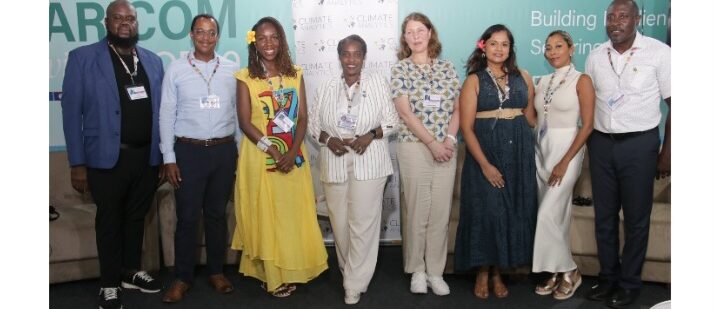As the global climate summit, COP30, enters its final week, the spotlight has shifted to the Caribbean, where Climate Analytics Caribbean unveiled two pivotal reports aimed at bolstering regional resilience and accelerating the energy transition. The presentations took place at the CARICOM Pavilion on November 18, featuring prominent figures such as The Honourable Senator Dr. Joyelle Trizia Clarke, Minister of Sustainable Development, Environment and Climate Action of St. Kitts and Nevis, and Mr. Chamberlain Emmanuel, Head of the Environmental Sustainability Division of the Organization of Eastern Caribbean States.
The first report, ‘Refining the Regional Goal on Adaptation for the Caribbean,’ authored by Sasha Jattansingh, Deputy Director and Senior Adaptation and Loss and Damage Adviser at Climate Analytics Caribbean, updates the proposed Regional Goal on Adaptation (RGA). This document aims to elevate climate adaptation efforts by addressing funding, capacity, and technical support gaps while promoting effective governance. It outlines fourteen strategic targets—eight thematic and six cross-cutting—that align with Caribbean priorities and contribute to the global Climate Goal on Adaptation (GGA).
The second report, ‘Pathways to Global Stocktake Implementation in the Caribbean,’ co-authored by Kory Hall and Kristin Qui, emphasizes the urgency of the Caribbean’s energy transition. With renewable energy accounting for only 12% of the region’s electricity in 2022, the report calls for tripling renewable capacity and doubling energy efficiency by 2030 to meet the Global Stocktake (GST) and Caribbean Sustainable Energy Roadmap and Strategy (C-SERMS) targets. It highlights the need for regulatory reforms, enhanced data systems, and regional cooperation to align Nationally Determined Contributions (NDCs) with GST efforts.
Endorsements from industry leaders like Philip Julien, CEO of Kenesjay Green Systems, and Mairi Dupar, Senior Research Fellow at ODI Global, underscored the importance of interconnectedness in empowering communities and scaling up financial and technological solutions. Minister Clarke concluded the session by advocating for international support to accelerate sustainable projects, particularly through the SKN-100 initiative, which aims to decarbonize St. Kitts and Nevis’ energy sector.
Both reports are set for publication later this year, marking a significant step in the Caribbean’s fight against climate change.
